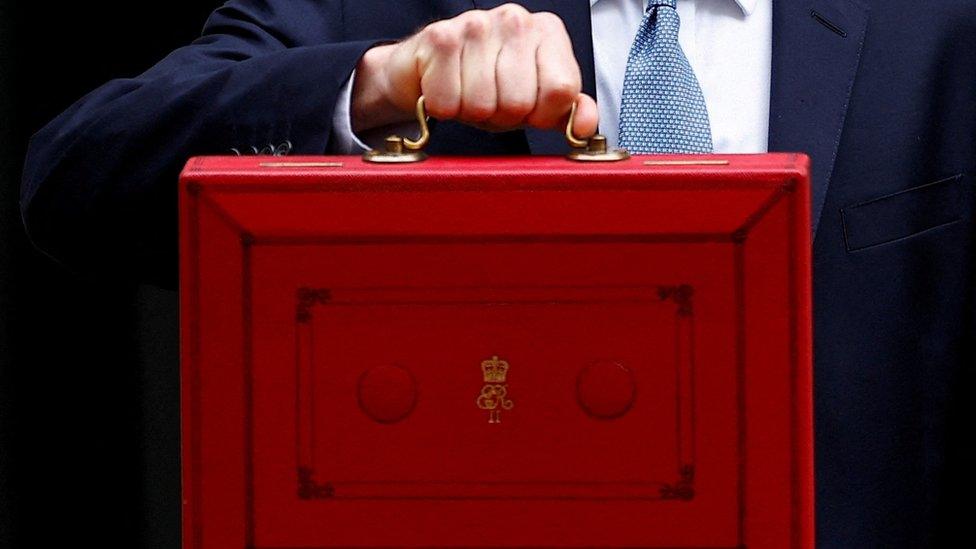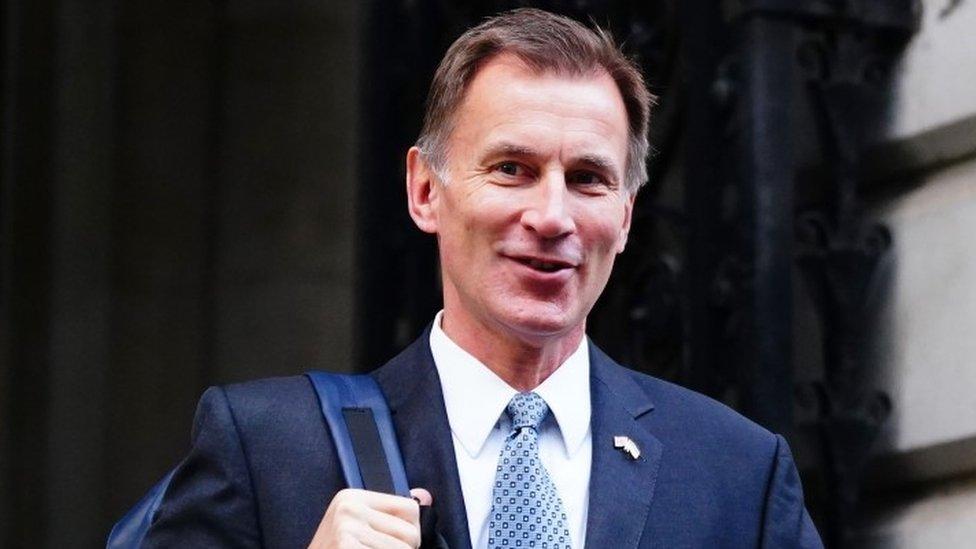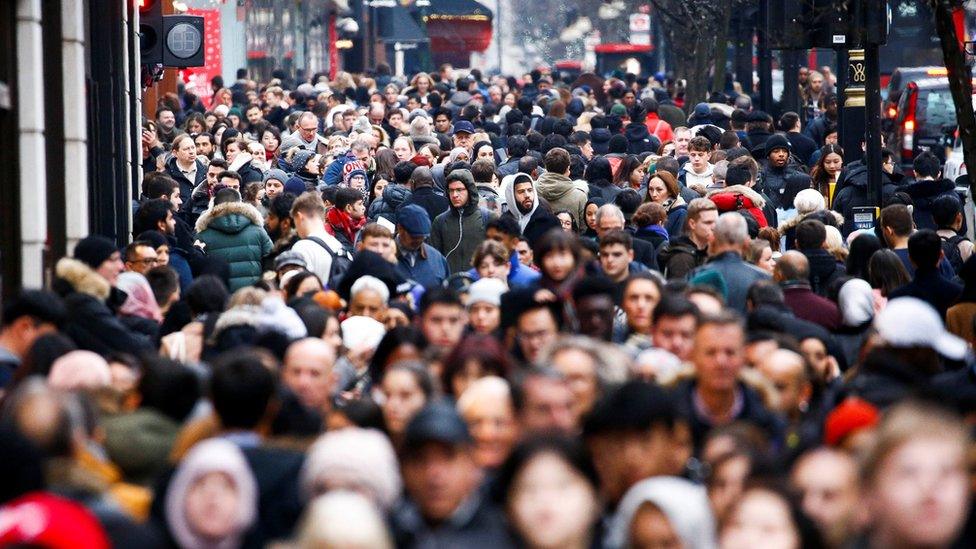Budget: Can Northern Ireland economy build on green shoots of recovery?
- Published

Chancellor Jeremy Hunt revealed his budget on Wednesday
In his budget speech on Wednesday, the chancellor was happy to announce that the UK is no longer expected to enter a technical recession this year.
But in Northern Ireland a technical recession actually began in the third quarter of last year.
That means there were two consecutive quarters of falling economic output.
Northern Ireland's official economic statistics showed output declining by 0.1% in the second quarter of 2022 and by 0.3% in the third quarter.
But this week there was some hope that the downturn could be relatively short and shallow.
Firstly, we got the same figures covering the final quarter of 2022.
They suggest that the services sector, by far the biggest part of the economy, finished the year strongly.

The services sector in Northern Ireland had a strong end to 2022
Output showed a quarterly increase of 1%, a much better performance than the second and third quarters.
Retail sales figures suggest the shops had a decent Christmas while output from the business services and finance sector reached a record high.
The broad production sector, which covers manufacturing, utilities and quarrying, did not fare so well with output down by 0.6% over the quarter.
A deeper analysis shows that most of that fall in output was due to a weaker performance in the electricity and gas sector, but that may just be a reflection of energy prices coming down from record highs.
The two main manufacturing subsectors, engineering and food, both had a good quarter.
It is not yet clear if that stronger performance by some parts of manufacturing and the service sector will have been enough for a return to growth overall.
The final analysis, which we will see at the end of this month, also has to account for the performance of the public sector and the construction industry.
Jobs data positive
The second glimmer of hope this week was the continuing strength of the jobs market.
Most economic forecasts for Northern Ireland suggest that unemployment will start to rise as the cost of living crisis continues to hit consumer demand and then company profits.
But there is no real sign of that happening just yet.
In fact, in January, the Northern Ireland unemployment rate fell back to just 2.4%, the lowest it has been since the pandemic.
Almost all the other jobs data was also positive - the employment rate was up, economic inactivity was down and redundancies remain well below the long-term trend.
The final glimmer of hope came in Ulster Bank's monthly business survey, known as the Purchasing Managers' Index (PMI).
It is not an official statistic but is usually a pretty good guide to where the official statistics are going.
The companies surveyed in February reported their first rise in output, and new orders in 10 months, while business confidence reached its highest level since Russia's invasion of Ukraine.
But we are not out of the woods yet. For example, Northern Ireland's housing market has yet to absorb the full impact of rising interest rates.

Changes to the housing market could also affect law and estate agency firms
A cooling housing market is not just an issue for construction; it will also feed through to professional services like law and estate agency.
It is also important to return to that forecast which allowed the chancellor to say that a UK recession is no longer expected.
It is produced by the Office for Budget Responsibility (OBR) and is published alongside the budget.
It suggested that people in the UK face their biggest fall in spending power for 70 years as the surging cost of living continues to eat into wages.
The OBR said that household incomes - once rising prices were taken into account - would drop by 6% this year and next, and living standards will not recover to pre-pandemic levels until 2027.
So even if Northern Ireland does soon emerge from a recession, it will not feel like that for many households.
Related topics
- Published15 March 2023

- Published11 March 2023

- Published13 January 2020
